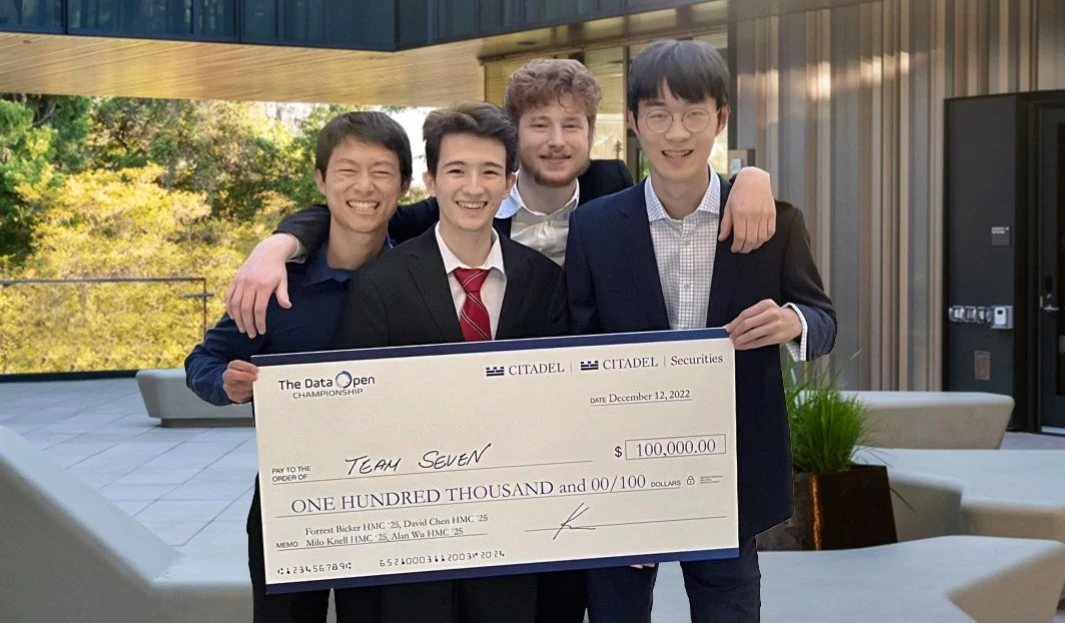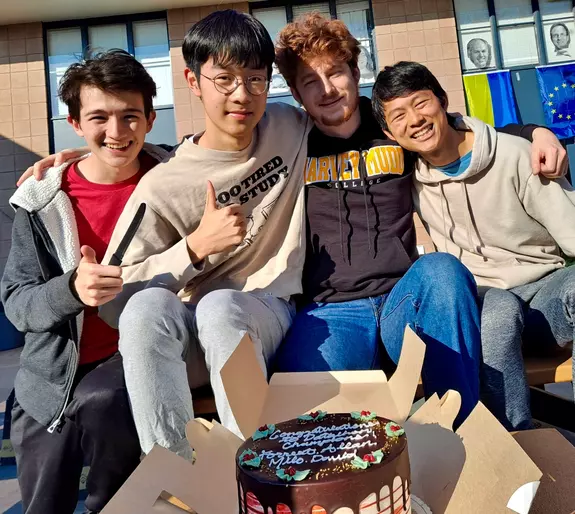
Last week three friends and I competed in the 2022 Citadel Data Open Championship, the "largest and most prestigious university-level data science competition in the world". Yesterday, our team was excited to be named the competition's champions. Today, I want to say thanks to everyone who made our victory possible.

I am greatful to Eszter Morvay for the support she provided. Eszter Morvay.
Acknowledgements
Thanks to my teammates David Chen, Milo Knell, and Alan Wu for making the grind a fun experience. Special thanks to Professor Linus Yamane who taught us many of the techniques we used in our investigation and inspired our appreciation for traditional statistical modeling. We also appreciate the support of the Harvey Mudd community, especially my previous research supervisor Professor Lucas Bang for letting us use his lab as a work space during the competition. Shout out to our friend Sahil Rane whose team managed to snag the runner up title. Thanks to Citadel and Correlation One for organizing the events! We had fun and are excited for what lies ahead.
